Humans
Sign up for our newsletter
We summarize the week's scientific breakthroughs every Thursday.
-
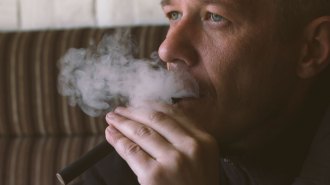 Health & Medicine
Health & MedicineVaping may damage the heart just as smoking does
Vapers and smokers showed similar signs of blood vessel damage, compared with people who didn’t smoke or vape.
-
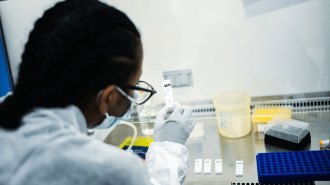 Health & Medicine
Health & MedicineWhat coronavirus antibody tests tell us — and what they don’t
Antibody tests can give a clearer picture of who has been infected but don’t guarantee immunity for those who test positive.
-
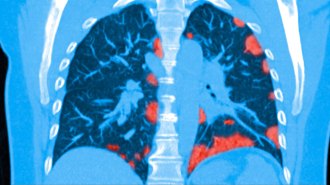 Health & Medicine
Health & MedicineSome patients who survive COVID-19 may suffer lasting lung damage
Results from a study in China suggest that some COVID-19 patients will be left with long-term lung problems.
By David Cox -
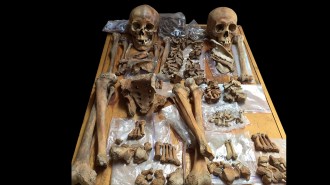 Anthropology
AnthropologySkeletal damage hints some hunter-gatherer women fought in battles
Contrary to traditional views, women in North American hunter-gatherer societies and Mongolian herding groups likely weren’t all stay-at-home types.
By Bruce Bower -
 Humans
HumansIt’s time to stop debating how to teach kids to read and follow the evidence
Most children need help learning to read, but there’s long-standing disagreement on how best to help them. Decades of research have identified the most effective approaches.
By Emily Sohn -
 Health & Medicine
Health & MedicineDrugs for high blood pressure don’t appear to make COVID-19 worse
Drugs commonly used to treat hypertension did not lead to more severe cases of the coronavirus infection or higher mortality in hospitalized patients.
-
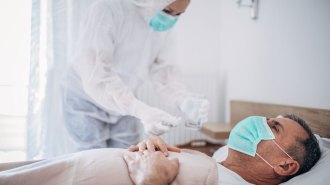 Health & Medicine
Health & MedicineCOVID-19 kills more men than women. The immune system may be why
Countries with sex-specific data report more men than women are dying of the coronavirus. Women’s stronger immune response may give them a leg up.
-
 Health & Medicine
Health & MedicineCOVID-19 is hitting some patients with obesity particularly hard
Doctors say some of their sickest COVID-19 patients are young and obese. One study shows they have higher rates of hospital admission and death.
By Dawn Fallik -
 Health & Medicine
Health & MedicineMore evidence hints that hydroxychloroquine doesn’t help treat COVID-19
A malaria drug showed no benefit over standard care in two preliminary studies examining how well hydroxychloroquine works against the coronavirus.
-
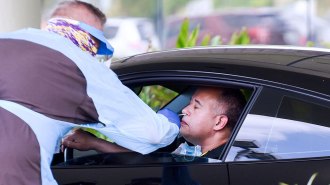 Humans
HumansHere’s where things stand on COVID-19 tests in the U.S.
Government officials are weighing how to loosen social distancing measures across the United States, but that hinges on widespread COVID-19 testing.
-
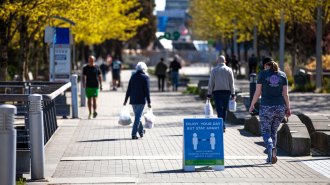 Health & Medicine
Health & MedicineWhy 6 feet may not be enough social distance to avoid COVID-19
Scientists who study airflow warn that virus-laden drops may travel farther than thought.
-
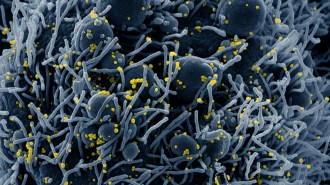 Health & Medicine
Health & MedicineCOVID-19 may be most contagious one to two days before symptoms appear
The coronavirus probably spreads the most before symptoms appear, making containing viral transmission harder.